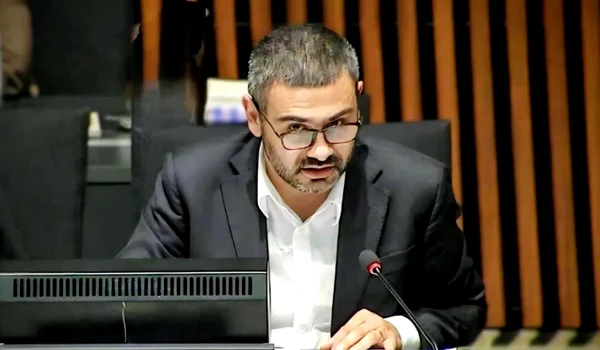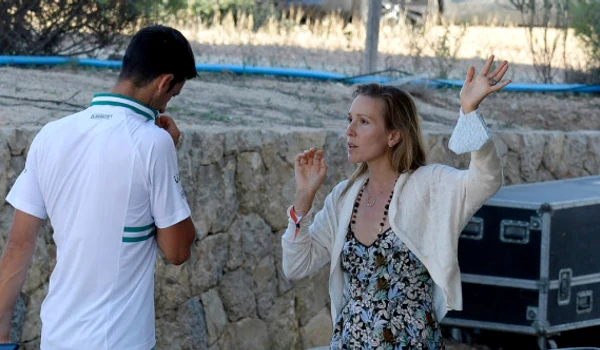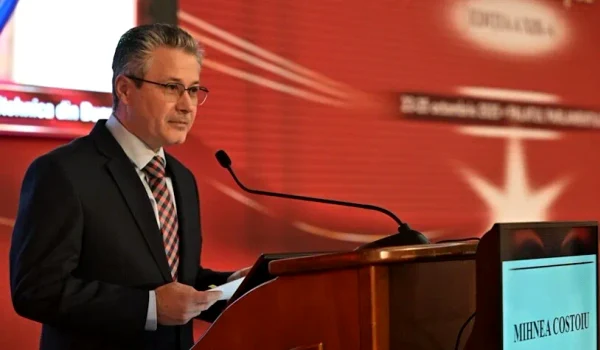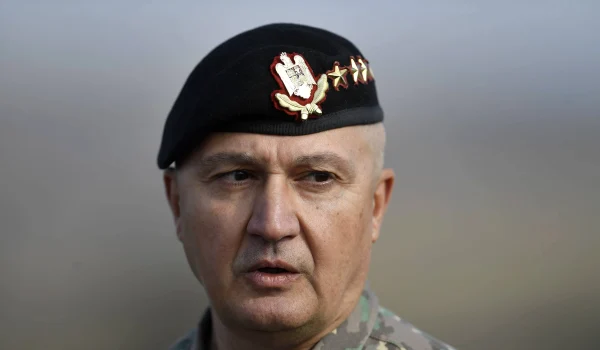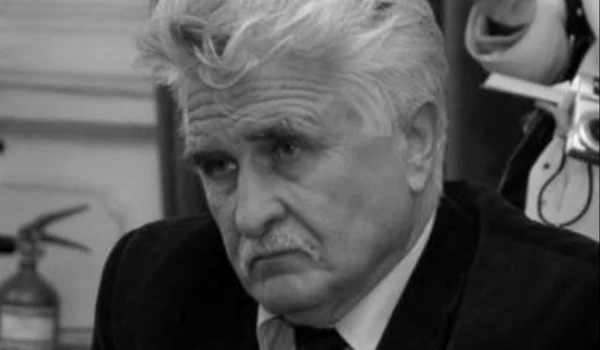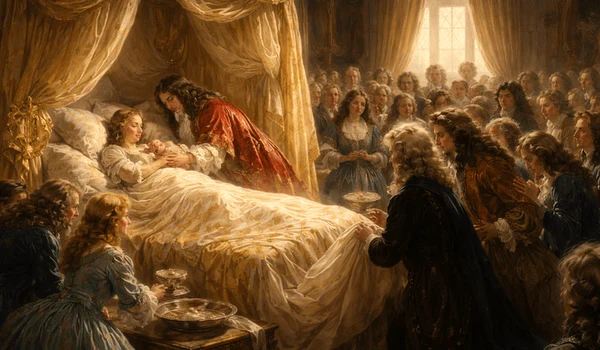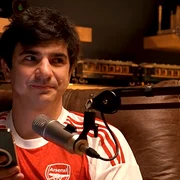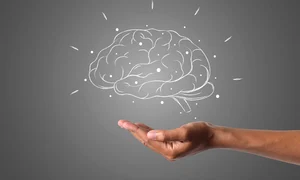
Rolul Religiei în alegerea Preşedintelui - un studiu de caz
0Campania electorală pentru alegerile prezidenţiale 2014 oferă un element interesant, din perspectivă religioasă, anume că cei doi candidaţi sunt membri ai unor culte religioase diferite. Candidatul Victor Ponta este creştin ortodox şi membru al Bisericii Ortodoxe Române. Candidatul Klaus Iohannis este creştin evanghelic lutheran de confesiune augustană, membru al Bisericii Evanghelice de Confesiune Augustană din România.
Subiectul apartenenţei religioase a candidaţilor este considerat, dacă nu un subiect tabu, cel puţin unul deranjant de către activiştii mioritici al lui ”politically correct”. În recenta campanie electorală s-au făcut eforturi incredibile atât din partea unor grupări ale societăţii civile şi mass-media, cât mai ales de către echipele de campanie ale celor doi candidaţi pentru a se elimina sau dimpotrivă, utiliza acest subiect, după cum dictează viziunea politică ori interesele fiecărei tabere.
Nivelul de cultură civică, politică şi de ce nu, religioasă al societăţii româneşti în Anul Domnului 2014 este suficient de redus încât să arunce subiectul convingerilor religioase ale candidaţilor la funcţii politice în bezna ignoranţei. Despre acest subiect se vorbeşte doar în două tonalităţi, ambele nefaste pentru progresul democraţiei noastre: fie cu stridenţa bigotismului religios politizat, fie cu isteria fanatismului civic al unui ”politically correct” strâmb, partinic şi grotesc.
În democraţie, cu precădere în situaţiile în care cetăţenii sunt chemaţi la votare, pentru a delega administrarea unei părţi din libertăţile lor politicienilor preferaţi, orice atitudine discriminatorie cu referire la rasă, credinţă religioasă, sex etc. trebuie condamnată şi sancţionată imediat. Totuşi, în agora, dar şi în mecanismul intim de evaluare şi decizie al alegătorului, elementul religios are un rol a cărui importanţă este mai mare sau mai mică, în funcţie de modul în care societatea, în ansamblul ei, şi fiecare cetăţean în parte, percep funcţionarea democraţiei.
Vă propun să studiem împreună câteva fragmente din diferite studii şi articole publicate cu ocazia campaniei electorale pentru prezidenţiale din anul 2012, în SUA. Vom descoperi că apartenenţa religioasă atât a candidaţilor, cât şi a votanţilor americani, deşi formal, legal nu este îngăduit să reprezinte un element de luat în calcul în dezbaterea politică şi în exercitarea dreptului de a alege şi a fi ales, în practică influenţează puternic rezultatul alegerilor, bineînţeles alături de programul politic al candidaţilor respectivi.
…program politic, trebuie să adăugăm, care a fost extrem de firav promovat de cei doi candidaţi în dezbaterile - să nu zicem, în scandalul - campaniei electorale pentru alegerile prezidenţiale 2014 din România.
***
Importanţa Bisericilor şi subiectelor religioase în politica americană
În SUA, rolul Religie în alegerea Preşedintelui USA a fost întotdeauna recunoscut. Dimensiunea religioasă a comportamentului public al candidaţilor, apartenenţa lor la o religie sau alta, precum şi modul în care valorile religioase se regăsesc în programul politic au fost mereu analizate cu atenţie de o bună parte a alegătorii americani, precum şi de politologii şi mass-media din SUA. Ne este foarte util să studiem aspectul religios al campaniei electorale pentru alegerea preşedintelui SUA din anul 2012 pentru a înţelege corect rolul şi interacţiunea aspectului religios cu mediul politic din democraţie, în general, şi din România post-decembristă, în special.
În articolul ”The Role of Religion in the U.S. Presidential Election” semnat de Dr. Mary Segers, de la University of Newark (link) despre cum percepeau/cunoşteau alegătorii americani apartenenţa religioasă a celor doi candidaţi (democratul creştin neoprotestant Obama şi republicanul mormon Romney) se arată că: ”Some 17 percent of the electorate think (in 2012 n.n.): President Barack Obama is Muslim (this has increased since 2008), despite the fact that Obama identifies as a Christian and was a member of Trinity United Church of Christ in Chicago from 1992 to 2008. He and his wife were married in that church and their two daughters were baptized there. Gov. Romney's Mormon affiliation does not seem to have had a negative effect on his candidacy, despite the fact that, in 2008, according to a poll by the PEW Forum on Religion & Public Life, 30 percent of Americans said they would never vote for a Mormon for president. Perhaps American society has become more tolerant of the Church of Jesus Christ of the Latter Day Saints in the last four years.”
Analizând compoziţia religioasă, sub anumite aspecte paradoxală, a votului la alegerile prezidenţiale, insistând asupra migraţiei unor categorii (non)religioase către candidatul Obama (catolici hispanici, protestanţi afro-americani, musulmani şi evrei americani cu tendinţa de a vota candidatul Partidului Democratic, care promovează laicitatea Statului, drepturile homosexualilor, accesul liber la avort etc., alături de mormoni, protestanţi evanghelişti şi votanţi atei ori nereligioşi), autoarea studiului avertizează cetăţeanul american asupra riscurilor şi dificultăţilor implementării valorilor religioase în politicile publice: ”Finally, I must sound a cautionary note. Religious voters should be cautious and realistic about the ways in which religious beliefs shape voting behavior. We may want to translate our religious beliefs and values into sound public policy for the common good. But we must be prudent and realistic about the risks involved. This is, after all, a complex, pluralistic, and highly diverse society.”
În articolul Presidential election: Religious voting groups could determine the winner publicat în Washington Post, autor Mark J. Rozell, profesor de politici publice la Universitatea George Manson (link) se sublinează atât rolul important al motivaţiei religioase a alegătorilor, cât şi (in)flexibilitatea orientării lor la vot din perspectiva motivaţiei respective:
”Modern election campaigns prominently feature appeals to religiously motivated voters. Candidates and consultants understand the powerful impact of the faith factor for many voters. Religious identity nonetheless remains a key factor in the election. The voting patterns of religious groupings are hard to ignore. Consider the following breakdowns, first with a look at the one-party-leaning groups: White Evangelical Protestants comprise about one-fourth of the population and have voted overwhelmingly Republican in recent election cycles – about 72 percent for John McCain (2008) and 78 percent for George W. Bush (2004). (...) Unaffiliateds, or the religious “nones,” are nearly one-fifth of the population and are as solidly pro-Democratic as evangelical Protestants are pro-Republican. (...) Black Protestants — about 8 percent of the population — are overwhelmingly pro-Democratic and surveys have this group giving almost universal support for Obama’s reelection. (...) Small religious minorities – several percent of the population — mostly are pro-Democratic, and these would include Muslims, Jews and a number of Eastern and New Age religious identities. Mormons of course would be the exception as a solidly Republican voting religious group. (...)
Mainline Protestants are slightly less than one-fifth of the population, and this group has voted Republican in recent election cycles, but only by small margins. The key determinant for this group is religious practice, not identity. (...) Catholics comprise about one-fourth of the population and commonly are known as the “swing vote” in national elections. Yet there really is no distinctive Catholic vote, as this segment time and again in recent years has voted similarly to the general population. Examining Catholic subgroups provides useful insights, as White Catholics (lean Republican) vote differently than Latino Catholics (heavily Democratic); observant Catholics (heavily Republican) vote differently than nominal Catholics (lean Democratic).”
Într-un studiu intitulat Election 2012: What role will religion play in the GOP nomination? autor Alissa Skelton, publicat pentru USA TODAY (link) se indică faptul că există un anumit echilibru, în cadrul procesului de votare, precum şi o interacţiune între importanţa apartenenţei religioase a candidatului şi nivelul de educaţie şi de venituri al alegătorilor, al modului în care aceştia se raportează la actul electoral:
”Religion has played a prominent role in presidential elections for decades. The public has again and again elected a Protestant male president. That status quo changed when John F. Kennedy was elected in 1961 as the first Catholic president, and, it could change again in 2012. Two of the 2012 Republican Party presidential candidates - Mitt Romney and Jon Huntsman - are Mormon. Romney’s religion played a substantial role in his 2008 presidential bid, with prejudices and suspicion surrounding his campaign. Three years later his religion has once again crept into the political spotlight. While introducing Texas Gov. Rick Perry last Friday at the Values Voter Summit, a Christian conservative gathering in Washington D.C., Pastor Robert Jeffress of First Baptist Church of Dallas called Romney “a good moral person” but said Mormonism “has always been considered a cult by the mainstream of Christianity.” (...) Contrary to Jeffress’ anti-Mormon attitude, a majority of people polled in June 2011 said they would vote for a Mormon. The Gallup poll showed 22 percent of people are “hesitant to support Mormons” for political office. (...) While religion can influence some voters, the best predictors of voter turn out are education, income and perceived competitiveness of the race, said Kelly Patterson, a political science professor at Brigham Young University in Provo, Utah.”
Observăm că decizia de vot este condiţionată, în cele din urmă, de nivelul de educaţie şi de nivelul de trai al alegătorului. Capacitatea acestuia de a înţelege mecanismele democraţiei, importanţa votului, programul politic al candidaţilor interacţionează cu nivelul de trai, rezultatul fiind acordarea votului unuia sau altuia dintre candidaţii ori, de ce nu, refuzul de a vota şi atitudinea „anti-sistem”.
În textul articolului The role of God in the 2012 US election, autori Mia Bruch şi Anna Grzymala-Busse (link) se face observaţia că Bisericile din SUA nu ezită să influenţeze agenda publică, promovând propria viziune asupra unor importante subiecte de interes public, uneori adaptând-o realităţilor sociale şi organizând entităţi civice capabile să ofere sprijin candidaţilor politici sau să condiţioneze programul lor politic:
„In a development that received far less attention than the evangelicals' entry into politics, they (evangelicals n.n.) were forging a new coalition with Catholics – centered around a version of what then Pope John Paul II called the "culture of life". While the original iteration espoused respect for life from conception to death, including opposition to the death penalty, the new, carefully edited consensus promoted by the coalition focused on anti-abortion and pro-life rhetoric, while remaining silent or supporting the death penalty; it espoused traditional gender roles, was suspicious of government in general and its regulation of schooling in particular, and vehemently opposed gay rights, much less marriage equality.
Conservative Catholics and evangelicals now spoke a common language, sidestepping the thorny issues of theology and doctrine that had divided them in the past (such as their differing views on divorce). More importantly, the coalition put an end to the question of whether a conservative Catholic could be a real American, since this quality of authenticity was increasingly clustered around Christian religiosity writ large, and allegiance on a certain set of social issues, rather than requiring adherence to a particular denominational form.
It was this coalition that provided the backbone of Santorum's support. Similarly, it will ensure that Ryan – with his staunch record of opposition to abortion and same-sex marriage – appeals to evangelical Protestant constituents. The new alliance made it easy for Santorum to speak to evangelicals, as well as Catholics, as if he were one of them, because, in many senses, he was. Ironically, his political views are far to the right of those espoused by most Catholics, who still identify primarily as Democrats, but his admixture of religious fervor, "pro-family" stances, and conservative theological views appealed all the more to evangelical voters and their leaders.”
În studiul „Religion and the 2012 American Presidential Election”, autor J. Matthew Wilson, realizat pentru Instituto per gli Studi di Politica Internazionale (link), se analizează, cu date statistice, importanţa problemelor religioase în confruntarea electorală din SUA şi în modelarea rezultatelor votului:
„One of the most significant but overlooked factors in American electoral politics, especially among foreign observers, is the role played by religious issues. According to data from the 2008 American National Election Studies, white Americans who seldom or never attend religious services (42% of all whites) gave Democrat Barack Obama 58% of their votes; by contrast, whites who attend religious services once a week or more (33% of all whites) voted 73% for Republican John McCain. This religious-based partisan disparity is larger than that between men and women, rich and poor, or union and non-union households. It is surpassed by the gap between white and black Americans (who are overwhelmingly Democratic), but religious observance has become far and away the strongest determinant of vote choice among whites.
Both candidates in the 2012 race bring to the table attributes that are likely to keep religion a salient issue in the campaign. Mitt Romney, the presumptive Republican nominee, is the first Mormon major-party candidate in American history. Even though the Church of Jesus Christ of Latter Day Saints (the official name for Mormonism) is the largest religion actually born in the United States, and despite the fact that it is rapidly growing (there are now more Mormons in America than Jews – about 3% of the population), it remains somewhat unfamiliar and mysterious to many Americans. Indeed, recent surveys have shown that more than 20% of Americans say they would be uncomfortable with the idea of a Mormon president.
At the same time, President Obama’s reelection bid is beset by religious struggles of its own. While Obama continues to enjoy overwhelming support in black churches and among America’s small “Christian left,” he has struggled mightily with faithful adherents of the nation’s two largest religious traditions: Evangelical Protestantism and Roman Catholicism. Obama, like most national Democratic politicians, ever enjoyed much support from evangelicals – they have become quite a reliable Republican constituency over the last couple of decades. Their aversion to the president was reinforced recently by his embrace of same-sex marriage, which made it much less likely that they would stay home on Election Day because of reservations about Romney (who immediately affirmed his support for traditional marriage).
Since his election, however, President Obama seems to have gone out of his way to pick fights with the Catholic Church, thereby alienating those faithful Catholics who might have been inclined to support him. In addition to the aforementioned endorsement of same-sex marriage, he has denied federal funds to Catholic adoption agencies (because they refuse to place children with same-sex couples) and women’s shelters (because they refuse to provide abortion referrals). Most notably, his administration has issued a directive requiring all employers, including Catholic schools and hospitals, to provide to their employees insurance coverage that includes contraceptives and abortifacients, even though this violates Church teaching. In response, multiple Catholic dioceses and institutions have sued the U.S. government claiming an unconstitutional infringement of their religious liberties, and the suits are now pending in federal court.”
Autorul reconfirmă faptul că valorile şi subiectele religioase vor interacţiona cu chestiunile economice legate de nivelul de trai, modelând astfel rezultatul votului: „The 2012 American presidential election will be full of religious subtexts. Obviously, economic conditions will matter a lot, and voters will expect the candidates to talk primarily about their plans for job growth, fiscal discipline, and taxation. At the same time, however, moral values issues will continue to powerfully shape American vote choice, even if neither candidate especially wants to talk about them.”
În articolul „Religion in the 2012 presidential election”, autor By D. Andrew Kille (link), se remarcă importanţa apartenenţei religioase şi interacţiunii candidaţilor cu Biserica, recunoscându-se dreptul pe care îl au alegătorii de a decide dacă viaţa religioasă a candidaţilor este un factor (i)relevant pentru acordarea votului:
„Bennett pointed out that historically in America, Mormons, African-American Christians, and Muslims have been closely associated in the minds of the majority. They have been suspect minority groups, and perceived as being exotic, mysterious, and "not like us." If either of the candidates had raised questions about the religious commitment of the other, it would have been a kind of "mutually assured destruction," as it would open the way for questions of their own tradition. Although both vice-presidential candidates were Catholic, members of the largest religious organization in the country, they tended to cancel each other out. Both Joseph Biden and Paul Ryan are articulate, thoughtful, and grounded in their religious faith, but the political positions they have taken because of their faith are diametrically opposed. This reflects the reality of the Catholic church itself, which includes not only Bishops calling on parishioners to vote on the conservative site, but the "Nuns on the Bus" who traveled to Ryan's own state to point out clearly how Ryan's economic proposals were incompatible with the wider Catholic Social Teaching.
Should religion be a factor in electing a president? The U.S. Constitution says it cannot be the sole factor. In Article VI, paragraph 3, it states: "no religious test shall ever be required as a qualification to any office or public trust under the United States." It will remain the responsibility of the voters to determine how a candidate's religious life may or may not be relevant. It is clear, however, that old categories for classifying and understanding religious life are changing, as the makeup of the nation is changing.”
Conform unui studiu realizat de PEW RESEARCH CENTER, intitulat The Media, Religion and the 2012 Campaign for President, (link) prezenţa subiectului religios în campania electorală pentru prezidenţiale 2012, în SUA, se exprimă, în procente, astfel:
„The overall level of religion coverage was about the same as in 2008: Of all the election stories studied, 1% were specifically about religion, the same portion as in 2008. Just 6% referred to religion in any way. That level of attention was fairly even across all platforms studied – with the exception of newspapers, whose front-page stories mentioned religion 16% of the time. More religion coverage focused on Romney than on Obama. Romney received twice as much religion coverage as Obama. (…) The two nominees rarely sought to bring religion into the campaign narrative. Just 8% of the religion stories during the 2012 race were prompted by statements or actions from the Romney campaign. For the Obama campaign, the comparable figure was even lower (5%). Religion coverage was heavily focused on the horse-race angle. Nearly half of all the religion-related stories studied (45%) dealt with how religion might impact the race. (…) The second biggest element of religion coverage dealt with the candidates’ beliefs and values. In all, 34% of the religion coverage during the presidential race focused on faith as a character issue or mentioned it in passing as part of a candidate’s biography. There was far less coverage -16% – of how religion might impact policymaking or governance. In social media, the tone of conversation about the candidates and religion tended to be negative. For Romney, negative assertions about his faith on Twitter and Facebook outnumbered positive ones by more than 3-to-1. And allegations that Obama is a Muslim appeared twice as often as messages seeking to refute those allegations. Within the Mormon community, media became a voice of caution to a group suddenly in the spotlight. An analysis of several publications aimed at members of the Church of Jesus Christ of Latter-day Saints (LDS) finds that during the campaign, LDS media often sought to prepare Mormons for increased scrutiny while maintaining distance from politics.”
Articolul „Religious values will play role in presidential election”, autor Diane Winston (link) avertizează asupra falsei opinii că Religia nu ar fi un factor important şi modelator al votului în alegerile prezidenţiale 2012 din SUA: „Many other evangelical voters will overlook Romney's religious label and focus on the practical applications of his faith. Like them, Romney opposes abortion, supports family values and embraces small government and low taxes. Similar to Jews, evangelicals vote against their class interests. Many well-to-do Jews, steeped in tikkun olam — the notion of repairing the world through justice and mercy — vote Democratic. They believe Democrats should promote social welfare even if it means higher taxes, curbs on business and stringent environmental policies. Middle-class evangelicals, by contrast, many of whose incomes have suffered under the ascendancy of free-market policy, support Republicans. They like the party that backs the American trinity: free men, free markets and the freedom for every citizen to have a personal relationship with Jesus. So when polls and pundits pronounce that religion isn't a factor in the 2012 election, don't believe it. Religious labels may be passe, but the religious values that inform who's taxed, what's regulated, how jobs are created and when or where we help those in need are more important than ever.”
Publicaţia „Christian Science Monitor”, în articolul „The faith factor: Religion's new prominence in campaign 2012”, autor By Mary Beth McCauley (link) prezintă atât asumarea în discursul electoral al candidaţilor a valorilor religioase, cât şi mutaţiile permanente care au loc în atitudinea publică a comunităţilor religioase americane faţă de partidele politice:
„God hit the campaign trail way back in the summer of this election cycle. Rick Perry asked His blessings on President Obamawhile Michele Bachmann wondered if earthquakes were His wake-up call and Jon Huntsman Jr. tweeted that evolution is "part of His plan." Ron Paul invoked Old Testament warnings against anointing a king. Newt Gingrich hit hard on repentance and forgiveness. And apparent front-runner Mitt Romney said it would take an "act of God" for feisty Rick Santorum to win the nomination. Mr. Santorum, for his part, accused Mr. Romney of believing he's ordained by God to win. "Religious currents are more pervasive and more multifaceted than ever in shaping the public debate," says Allen Hertzke, a professor of political science at the University of Oklahoma in Norman. While religion historically has influenced politics, affiliation was typically the dividing line: Protestants voted Republican and Catholics voted Democratic. "Patterns now suggest something unusual in American politics – division along the lines of salience of religion" itself, says Professor Hertzke. "This year, it has intensified." The enduring points of division seem to be legal abortion and gay marriage – issues unimaginable a generation ago, when compromise characterized politics. (…) Today, believers left and right are worried about a lot more than abortion and gay marriage.
Many are alarmed that the emerging challenge to religious autonomy has broader implications. For example, on a global scale, some think it may someday thwart their ability to manage church humanitarian efforts in compliance with their own reading of the Scriptures. If churches are pressed to violate their beliefs about gay marriage or abortion, for instance, the poor may have to wait while the churches defend their religion in court. Religious groups raise many billions of dollars annually from members and funnel it into virtually every corner of the globe, alleviating poverty, illuminating abuses like human trafficking, and treating disease, says Hertzke. Their style might well be the opposite of the government's – lean budgets, local expertise, working cooperatively and almost unnoticed. "Especially on the international front, religious groups are important players. They are the largest global [relief] networks in some of the most impoverished places on earth," Hertzke says.”
***
Câteva concluzii şi mesaje către candidaţi
În ultima săptămână de campanie electorală pentru alegerile prezidenţiale 2014, din România, chestiunea religioasă a fost abordată, direct sau indirect, de ambele tabere, chiar dacă nu în totalitatea aspectelor sale.
Echipa de campanie a candidatului Klaus Iohannis a decis că ar fi folositor pentru acesta pe de o parte, să treacă sub tăcere, în discursul electoral al candidatului lor, orice subiect de natură religioasă (apartenenţa religioasă, relaţia dintre stat şi culte, finanţarea cultelor de la bugetul de stat, prezenţa orei de religie în şcoală, relaţia dintre Preşedintele Republicii şi Biserica Ortodoxă Română, biserica naţională şi cel mai mare şi important cult recunoscut de statul român etc.), iar pe de altă parte, să instrumenteze, prin intermediul presei prietene ori aliaţilor politici care susţin candidatura lui Klaus Iohannis, atacuri vehemente la adresa Bisericii Ortodoxe Române.
Klaus Iohannis, urmând planul de luptă al echipei de campanie, acceptă să comită o gravă eroare: ignoră faptul că marea majoritate a românilor sunt creştini ortodocşi. Miza pe cele câteva zeci de mii de susţinători din Diaspora este una necâştigătoare, dacă Klaus Iohannis ignoră realităţile sociale, culturale, economice şi religioase ale românilor care trăiesc în ţară. Atât tăcerea bizară asumată de Klaus Iohannis în legătură cu chestiunea relaţiei cu Biserica Ortodoxă Română, cât şi atacurile la adresa acestei biserici, lovituri de imagine instrumentate de activiştii ACL şi presa prietenă pot provoca efecte care vor reduce şansele de victorie ale candidatului dreptei româneşti. O dreaptă politică reprezentată, culmea, de Alianţa Creştin Liberală, adică de o formaţiune politică ce şi-a asumat particula „creştin” în denumirea oficială!
Două pot fi efectele atitudinii lui Klaus Iohannis de a ignora subiectul credinţei creştine ortodoxe a majorităţii votanţilor români, precum şi cel al relaţiei cu Biserica Ortodoxă Română şi de a îngădui atacurile la adresa celei mai numeroase şi importante biserici a naţiunii române:
Primul efect ar fi să provoace o reacţie de apărare în rândul alegătorilor creştini ortodocşi – care deşi uneori sunt critici la adresa comportamentelor publice ale unora dintre preoţi, sunt totuşi loiali credintei creştine ortodoxe şi Bisericii Ortodoxe Române. Dacă Klaus Iohannis nu va profita de puţinul timp rămas din campania electorală pentru a clarifica relaţia pe care doreşte să o dezvolte, în calitate de potenţial Preşedinte al Republicii, cu Biserica Ortodoxă Română, mulţi dintre votanţii creştini ortodocşi îl vor percepe, probabil, ca pe un candidat străin de credinţă şi de neam şi vor vota pe candidatul Victor Ponta, chiar dacă acesta nu le este suficient de simpatic sau demn de încrederea lor, ca o reacţie de apărare a Bisericii şi credinţei creştine ortodoxe.
Al doilea efect ar fi să provoace iritarea ierarhiei şi preoţilor Bisericii Ortodoxe Române. Biserica deţine numeroase pârghii de a influenţa pe credincioşi, spre binele lor şi al credinţei. Biserica Ortodoxă Română nu a folosit şi nu va folosi vreodată, ca politică oficial asumată, astfel de instrumente pentru a influenţa votul cetăţenilor români. Apelul Patriarhiei Române, lansat înainte de turul 1 al alegerilor prezidenţiale, îi îndeamnă pe români să participe la vot şi să voteze liber şi în conformitate cu valorile creştine, pentru binele naţiunii şi statului român.
Atacurile lansate asupra Bisericii, cât şi încercările de a o transforma în „agent electoral” nu au determinat Biserica să se implice instituţional în lupta politică şi nici nu o vor determina.
Totuşi, un preot şi credincioşii lor din parohie pot percepe atacurile la adresa Bisericii lansate de una sau alta dintre taberele politice, ca un pericol şi vor reacţiona în conformitate cu gravitatea acestuia. Nu în ultimul rând, trebuie să reamintim, tăcerea neprietenoasă a candidatului Klaus Iohannis cu privire la subiectul relaţiei dintre Preşedintele Republicii şi Biserica Ortodoxă Română, ca biserică naţională, poate fi percepută de unii preoţi şi credincioşi tot ca un posibil pericol şi va genera o reacţie de apărare.
A provoca iritarea alegătorilor creştini-ortodocşi şi a Bisericii Ortodoxe Române, alături de absenţa unui program politic coerent – care să conţină ceva mai mult decât a garanta, deocamdata la nivel de promisiune, independeţa Justişiei şi a te lamenta că românii din Diaspora nu pot să voteze, fără însă a prezenta ceva soluţii economice pentru ca aceştia să nu mai emigreze economic, ci să se reîntoarcă şi să prospere în ţară – constituie un amestec exploziv care pe de o parte, poate diminua simpatia pe care Klaus Iohannis a reuşit să o recupereze în rândul alegătorilor, iar pe de altă parte, va creşte probabilitatea de a fi învins.
Echipa de campanie a candidatului Victor Ponta mizează atât pe apartenenţa acestuia la credinţa creştin ortodoxă, cât şi pe calitatea lui de prim-ministru. Candidatul Victor Ponta nu a ezitat să-şi asume public calitatea de membru al Bisericii Ortodoxe Române, afişându-se, probabil în mod sincer, cum se cere oricărui creştin ortodox, la slujbele religioase oficiate de Biserică în perioada de campanie electorală. Evident, nici pârghiile guvernamentale nu au fost ignorate.
Totuşi, dacă la acest moment, apartenenţa candidatului Victor Ponta la credinţa creştină ortodoxă poate să reprezinte un avantaj, să nu uităm că asupra lui exercită mari presiuni două forţe care nu trebuie subestimate şi care pot transforma calitatea de creştin a lui Victor Ponta într-o povară greu de purtat:
Pe de o parte, este o oarecare precaritate a programul politic al candidatului Victor Ponta. Acest program politic este afectat de idealul „anti-băsist”, de ideea că victoria lui în algeri va însemna „sfârşitul regimului Băsescu”. Chiar aşa fiind, acest ideal se lasă ca o ceaţă peste soluţiile economice, politice concrete ale proiectului de ţară pe care Victor Ponta doreşte să-l implementeze, dacă va fi ales ca Preşedinte al Republicii. Faptul că îţi faci datoria de creştin şi îţi mărturiseşti credinţa, nu ţine loc de program politic.
Pe de altă parte, formaţiunea politică a candidatului Victor Ponta – Partidul Social Democrat – face parte dintr-o familie politică a Socialiştilor Europeni care promovează unele valori în contradicţie flagrantă cu valorile creştine – cum ar fi libertatea absolută a avortului la cerere, privită ca drept al femeilor la liberă alegere, ca acces al acestora la drepturile sexuale şi reproductive (vezi Manifestul PSE Mai 2014 –link–) Totodată, unele partide socialiste naţionale importante, membre ale Partidului Socialiştilor Europeni – Partidul Socialist din Franţa (link), Partidul Socialist al Muncitorilor din Spania (link), Partidul Muncii din UK (link) – s-au pronunţat fie pentru separarea totală a Statului de Biserică, fie pentru dreptul la căsătorie al homosexualilor, subiecte delicate care pot afecta relaţia cu Biserica. Probabil că Agenda politică a Socialiştilor Europeni va cere să fie implementată de către candidatul Victor Ponta, dacă acesta va fi ales ca Preşedinte al Republicii. La acel moment, va fi necesar ca Victor Ponta să-şi reamintească faptul că în campania electorală a declarat cu mândrie şi public că este creştin ortodox, membru al Bisericii Ortodoxe Române.
Societatea românească şi actorii implicaţi în această complexă relaţie dintre societate, stat, politică şi Biserică sunt încă la vârsta „bolilor copilăriei”. Dacă în democraţia americană, printre cele mai vechi din lume – aşa cum am văzut din lectura câtorva din miile de studii şi articole publicate pe acest subiect în SUA – ignorarea de către politicieni a subiectelor de natură religioasă şi a agendei publice a Bisericilor americane ar fi un gest absurd şi ar provoca reacţia critică a alegătorilor americani membri ai diferitelor culte şi biserici, în România eşti pus la colţ şi condamnat fără judecată şi drept de apel dacă încerci să promovezi dezbaterea acestui subiect.
În calitatea mea de preot creştin ortodoxă, vreau să reamintesc politicienilor implicaţi în lupta pentru dobândirea funcţiei de Preşedinte al Republicii - fie creştini ortodocşi, creştini de alte confesiuni, fie atei - dar şi românilor de pretutindeni că Biserica Ortodoxă Română a consacrat anul 2014 ca An Comemorativ al Sfinţilor Martiri Brâncoveni.
Sfinţii Martiri Brancoveni, Constantin Voievod cu fiii săi, Constantin, Ştefan, Radu, Matei şi sfetnicul Ianache, prăznuiţi pe 16 august, au refuzat să se lepede de la credinţa creştină, în august 1714, chiar în ziua când Constantin Voievod împlinea 60 de ani şi pentru acest refuz au fost decapitaţi de otomani, primind moarte mucenicească. Ultimele cuvinte ale lui Constantin Brâncoveanu au fost: ”De legea creştină nu mă las, căci în ea m-am nascut şi am trăit, şi în ea vreau să mor!”
Doar o vorbă vom mai spune: cine îşi închipuie că dimensiunea religioasă nu ar conta la votul pe care românii îl vor acorda duminică celor doi candidaţi pentru funcţia de Preşedinte al Republicii, se înşală amarnic.
*** Notă: citatele sunt în limba engleză, pentru a păstra acurateţea textului şi a elimina orice interpretare personală indusă de traducere.















